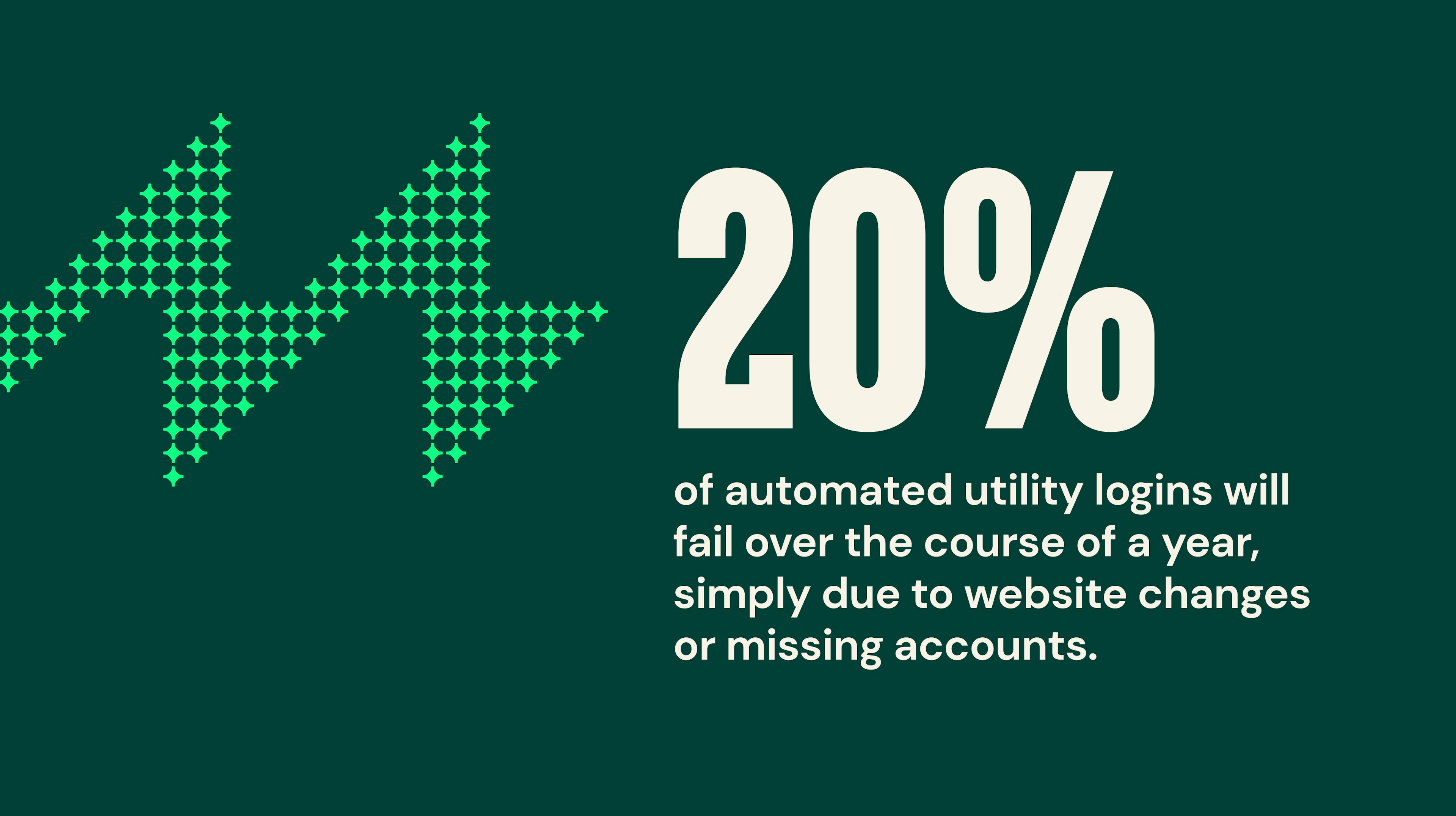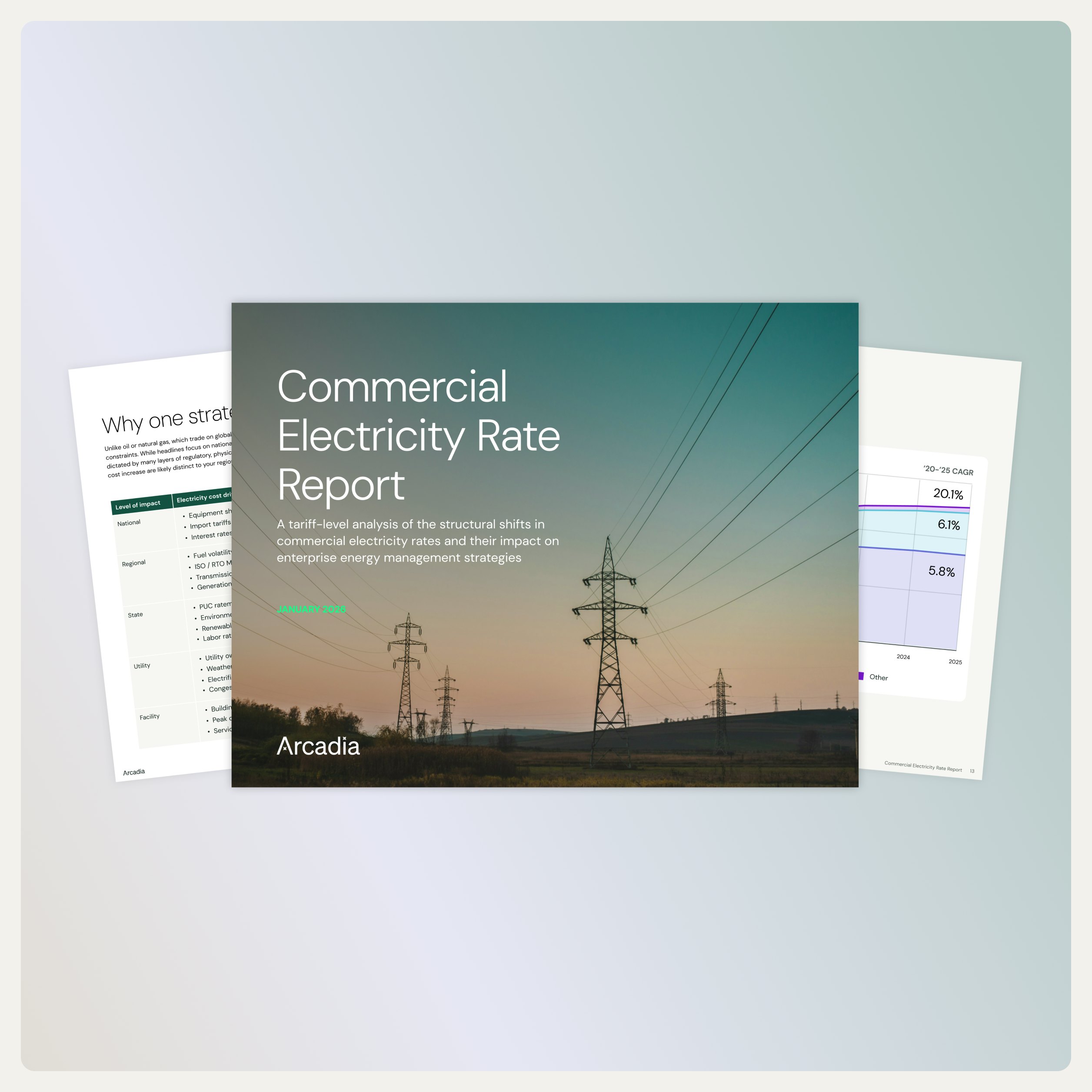How do we tackle the 'E' in ESG?

Environmental, Social, and Governance (ESG) is a criterion for evaluating a company’s operations in regard to socially and sustainably conscious policies. ESG reporting is a critical part of a company’s value and future prospects. Its importance will continue to grow as pressure for climate action mounts.
Of all the aspects, the environmental portion can unfortunately be the most difficult to report on. The data for scope 1, 2, and 3 emissions are scattered — being fed to companies through various, disparate sources. It’s not always an easy task, but it is critical that businesses establish a process for collecting and analyzing this information, especially considering the recent announcement from the SEC.
How is utility data collected?
Currently, most companies use one of the following methods to aggregate their data.
OCR software
“Optical Character Recognition” is a technology that recognizes text within a digital image or a scanned document. It enables easier interpretation of a physical paper document that has been converted to an accessible electronic version. While OCR can be very helpful in collecting data for reporting on scope 1 and 2 emissions, it requires ongoing maintenance as well as human intervention to achieve accuracy. OCR will also deliver data in a format that can be hard to understand, sometimes making it unreliable software for your data.
Web scraping tools
This software is programmed to sift through databases and extract information using bots, some of which are customizable. Using pre-built web scraping tools or even building your own comes with its own challenges. About 20% of automated utility logins will fail over the course of a year, simply due to website changes or missing accounts. Maintaining these tools costs up to $6,000 per provider per year.
Manual data entry
Hiring employees to manually input data is another option. This is the usual standby for data collection but relying on people can lead to delays, especially in times of disruption like the pandemic. On average, manually entered data also carries one error for every three to five bills entered. Relying on teams of data entry employees is also difficult to scale if utility bill volume increases.

About 20% of automated utility logins will fail over the course of a year, simply due to website changes or missing accounts. There is a cost to using these methods and it’s not just a dollar amount; it’s also time and resource allocation. When companies operate from bad data, it can cost anywhere between 15% and 25% of their revenue. Even with seemingly low-cost options, there are hidden costs that may not be considered.
Why tackling the E in ESG with utility data is critical
As many set effective strategies for achieving sustainability goals, and companies and countries strive to support climate action efforts, utility data is emerging as a crucial piece. This data helps to establish a baseline, measure progress, and accomplish objectives.
Automated access to monthly energy, water, and gas consumption data is a critical part of powering accurate and consistent reporting for the “E” in ESG. In addition to providing accurate metrics for progress, the line-item detail of usage, spending, and tariffs provided on a digital utility bill, can confidently pinpoint the highest priority areas for renewables and prove ROI over time. This insight is critical for achieving sustainability and energy goals. With a secure process in place, companies can trust in the longevity of their efforts to support climate action.
Power your ESG and sustainability goals
Accurate data is essential for reporting the environmental impact of any company’s footprint. Without a reliable stream of good quality data, sustainability initiatives will be difficult to measure and even harder to achieve. As the world continues to work toward net-zero emissions, it’s imperative the insights gleaned provide the right path forward. Companies, employees, consumers, and the world can’t wait.
With Utility Cloud, an Urjanet product now powered by Arcadia, companies can access the precise energy data they need to address their sustainability goals and environmental reporting for ESG. To learn more, visit https://urjanet.com/utilitycloud or contact us at utilitycloud@arcadia.com.

Download our white paper ESG 101: A Focus on Environmental Reporting to learn more.
Download nowJoin our newsletter
Stay updated with our latest insights, industry trends, and expert tips delivered straight to your inbox


